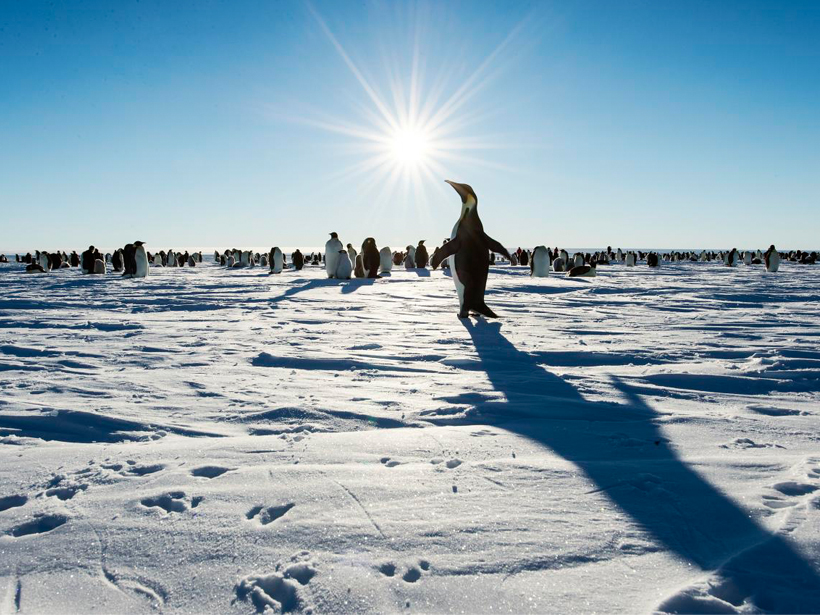The Antarctic Circumpolar Current is the only ocean current to circle the planet and the largest wind-driven current on Earth. It's also 30% more powerful than scientists realized.
currents
Major Ocean Circulation Pattern at Risk from Greenland Ice Melt
The current warming trend could mean the collapse of ocean's global conveyor belt, which would have far-reaching effects on climate around the world. But this collapse could still be avoided.
Gulf Stream Destabilization Point Is on the Move
Westward migration of the wavelike Gulf Stream pattern could have big effects on ocean mixing and heat transport off the U.S. East Coast.
High-Resolution Ocean Model Captures Large-Scale Heat Transport
A lower-resolution model is sufficient to capture air-sea interactions, but a high-resolution model better simulates average sea surface temperatures in the North Atlantic.
Elephant Seals' Dives Show Slowdown in Ocean Circulation
Data from instruments mounted on elephant seals reveal that melting ice flushes fresh water into the Southern Ocean, suppressing an important arm of the global ocean circulation belt.
What Steers Antarctica's Largest Current?
Scientists have observed that pressure from current-seafloor encounters drives the direction of the massive Antarctic Circumpolar Current in the Southern Ocean.
Going Against the Flow: Documenting Seasonal Current Reversal
Scientists discover the source of a coastal Korean current that reverses its flow in the summer.
In the Eastern Pacific Ocean, the "Blob" Overshadows El Niño
Underwater gliders and ocean modeling reveal unexpectedly weak El Niño effects on a major West Coast current.
The Dance of Surface Waves and Ocean Circulation
One mathematical model best describes the complex interplay between an ocean's surface waves and its underlying circulation.
How Do the Deep Waters of the Antarctic Form?
Researchers uncover new insights into the life cycle of water in the Antarctic region by measuring noble gas concentrations.








